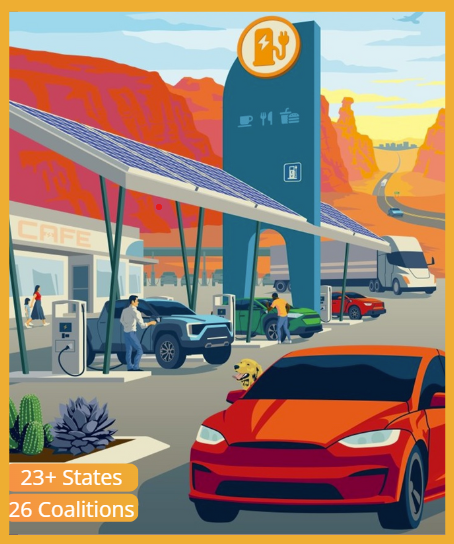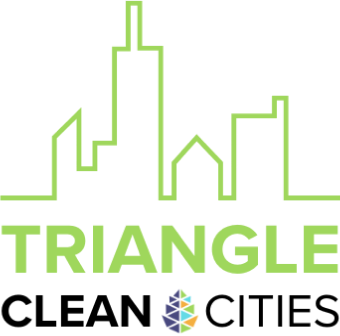TEST Program: Advancing Real-World EV Charging Solutions

Triangle Clean Cities is proud to be the lead of the TEST Program—Team-based Evaluation, Surveying, and Training for Real-World Charging—a groundbreaking initiative aimed at improving the reliability, accessibility, and effectiveness of electric vehicle (EV) charging infrastructure across the United States.
This multi-year effort is a joint collaboration between Triangle Clean Cities, the National Energy Technology Laboratory, Idaho National Laboratory, the Joint Office of Energy and Transportation, and East Tennessee Clean Fuels, along with 26 Clean Cities and Communities coalitions spanning 23+ states.
In February, the automotive research site ISeeCars.com ranked North Carolina as the fifth most-improved state for EV infrastructure, showing a 26.8% increase in the ratio of charging stations per resident—from 3,403 residents per charger in 2022 to 2,490 in 2023. This momentum reinforces the importance of regional and national initiatives like the TEST Program.
Project Goals & Impact
The TEST Program is designed to address critical aspects of EV charging deployment, including:
- State Officials Training – Establishing ongoing testing procedures and ensuring best practices for replicability.
- Workforce Development – Equipping participants with hands-on skills in EV charging evaluation, creating transferable career opportunities in the clean transportation sector.
- Troubleshooting & Standardization – Identifying and addressing issues with EV charging stations while developing a consistent, scalable framework for network deployment.
- EV Charging Friendliness – Enhancing the effectiveness and accessibility of charging infrastructure to support widespread EV adoption and deployment.
Project Timeline
The TEST Program will take place over three years with specific phases designed to develop standards, train personnel, and create long-term impact:
Phase 1
- Establish baseline standards for EV charging evaluation
- Develop testing equipment and a standardized rubric
Phase 2
- Implement training programs and conduct real-world testing
- Collect and analyze data on charging station performance
- Provide training for State Departments of Transportation
Phase 3
- Expand State DOT training and develop a structured curriculum
- Finalize reporting, replication strategies, and long-term program sustainability
By the conclusion of the TEST Program, the project will have established a replicable model for evaluating and improving EV charging infrastructure nationwide, ultimately supporting the transition to an energy independent and reliable transportation future.
